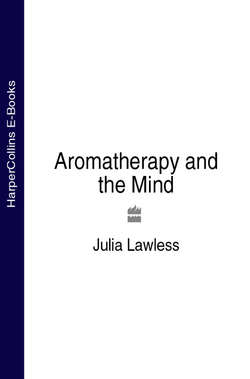Читать книгу Aromatherapy and the Mind - Julia Lawless - Страница 9
Оглавление1 Aromatics: Medicine for the Mind
Where are they now, the days of aromatic warmth and hot-scented remedies!
Gaston Bachelard, The Psychoanalysis of Fire
In order to explore the role of aromatics and their effects on the mind, it is necessary to begin by first defining what is meant by ‘mind’, especially in its relation to the body. For unlike the physical organs and their functions, which can be described and understood in a straightforward manner, the mind by its very nature is much more subtle and difficult to grasp. This is made more complex by the fact that the definition of the word ‘mind’ has tended to vary in accordance with the cultural and philosophical attitudes of any given time or location. For the sake of simplicity, ‘mind’ is used here to denote anything of a psychological nature, including the emotional and spiritual disposition of an individual. Having said this, the very act of trying to isolate ‘mind’ from ‘body’ is based on false premises – in reality, the two are not separate entities, but rather interrelated aspects of a whole.
Medical attitudes regarding the relationship between the body and mind have also changed with the course of time. Theories concerning medical treatment have depended upon which aspect has been given pre-eminence within the cultural ethos of the society. Different cultures have at various times emphasized all aspects of the human condition – physical, emotional and spiritual – and have developed in diverse ways. In general, however, especially in the West, the evolution of ideas concerning the psyche-soma interaction can be seen to fall into three main epochs:
1) In the first, disease was thought to arise from causes external to the patient, never from ‘natural causes’ within the person. According to primitive belief, an illness was either caused by a malevolent spirit, sorcery on the part of an enemy or the evil influence of a deity. Sickness invoked by the transgression of some moral or religious law could only be remedied by a return to the correct mental or spiritual attitude. To be skilled in the practice of medicine in a primitive society therefore required an extensive knowledge of spells, charms and rituals – what we now call magic. The part played by psychological elements in this type of healing process was consequently of paramount importance.
2) In the second epoch, disease was regarded as the manifestation of an essentially physical or chemical imbalance, with secondary effects on the mind. The initial departure from the ancient magico-religious type of thinking can be traced to Hippocrates, known as the ‘Father of Medicine’. He was the first to separate the practice of medicine from all religious or philosophical theory by focusing on the physical manifestation of the symptoms themselves. In establishing the method of ‘clinical observation’, he provided the foundation for the scientific approach that has dominated the medical field up to the present era.
3) In the third period, during which the term ‘psychosomatic’ has been introduced, an individual’s well-being or ill-health are seen as ‘anthropological’ or involving the whole person. According to this view, the basis of all disease is a lack of wholeness. The cure is itself already implied by the words ‘whole’, holy’, ‘heal’ and ‘healthy’, where health is not simply seen as an absence of illness but as a state of unity. This is the principle on which all ‘holistic’ therapies are based, including aromatherapy, where the overall aim is to bring the body and the mind into harmony through attention to the physical, emotional and spiritual needs.
